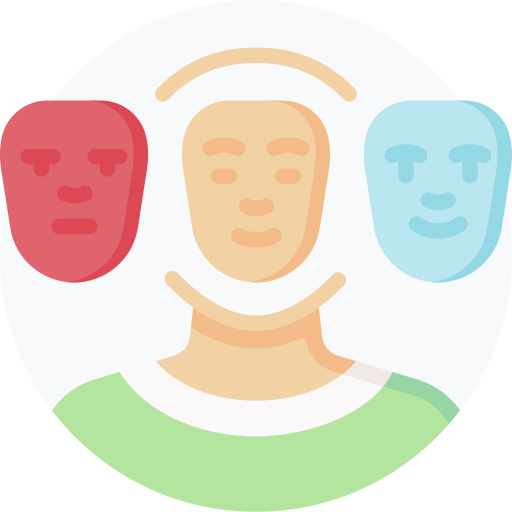
Personality Disorders:
Personality disorders are enduring patterns of inner experience and behavior that deviate significantly from societal expectations, causing distress or impairment in social, occupational, or other important areas of functioning.
Types:
Types of personality disorders include Cluster A (odd or eccentric), Cluster B (dramatic, emotional, or erratic), and Cluster C (anxious or fearful) disorders.
Cluster A: This group includes paranoid, schizoid, and schizotypal personality disorders. Individuals with these disorders often display odd or eccentric behaviors, such as distrust of others (paranoid), detachment from social relationships (schizoid), and peculiar thought patterns (schizotypal).
Cluster B: Comprising antisocial, borderline, histrionic, and narcissistic personality disorders, this cluster is characterized by dramatic, emotional, or erratic behavior. Individuals may exhibit impulsivity (antisocial), unstable relationships (borderline), attention-seeking behavior (histrionic), or an inflated sense of self-importance (narcissistic).
Cluster C: This cluster includes avoidant, dependent, and obsessive-compulsive personality disorders, characterized by anxious or fearful behavior. Individuals may display avoidance of social situations (avoidant), reliance on others for decision-making (dependent), or perfectionism and rigidity (obsessive-compulsive).
Define:
Personality disorders are characterized by inflexible and maladaptive patterns of thinking, feeling, and behaving that cause significant distress or impairment in various aspects of life.
Etiology:
The etiology of personality disorders involves a complex interplay of genetic factors, early life experiences (such as trauma or neglect), environmental stressors, and neurobiological vulnerabilities, contributing to the development and maintenance of these disorders.
Prevalence:
Personality disorders are estimated to affect around 10-13% of the general population, with rates varying across different disorders and populations. They often co-occur with other mental health conditions and can persist throughout the lifespan.
Treatment:
Treatment for personality disorders typically involves psychotherapy, such as dialectical behavior therapy (DBT), cognitive-behavioral therapy (CBT), or psychodynamic therapy, aimed at addressing maladaptive patterns of thinking and behavior. Medications may be used to manage specific symptoms or co-occurring conditions. Treatment approaches are tailored to the individual's specific needs and may require long-term support and management.